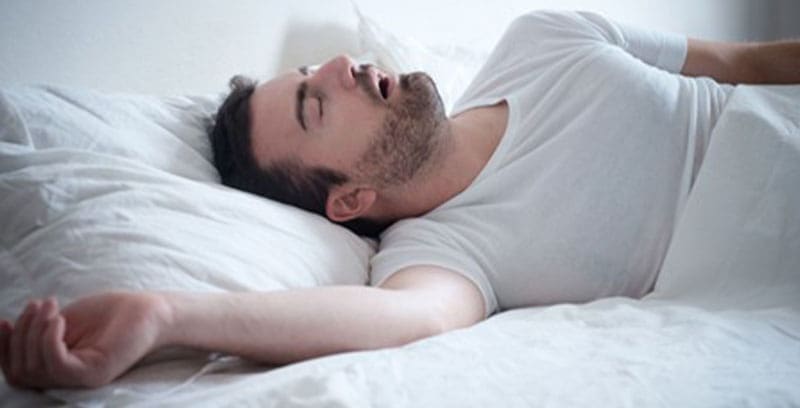The helpful folks over at the World Sleep Society are bringing attention to the ongoing health problems that insufficient sleep can create. Today we’re getting behind their global call to action – World Sleep Day®.
Waking up to Sleep Challenges
There’s little better than a great night’s sleep and yet up to 45% of the world’s population are experiencing sleep problems that are threatening both their health and quality of life. That number is pretty astounding, right?
Well here’s the crazy thing. Most sleep disorders are preventable – or treatable – but less than one third of sufferers seek professional help. Yes, that’s right. Most people who experience ongoing sleep issues just suffer in silence.
Whether you’re not getting enough sleep or struggling to get truly restorative sleep, unless you get a handle on it, it’s likely to catch up with you one day soon. On top of making each day all the more challenging, there are all kinds of health implications which stem from poor quality sleep.
Martine Barclay is a masters trained Psychotherapist who specialises in working with people through their sleep and insomnia challenges. She says that 67% of all health complaints in Australia can be tracked back to lack of adequate quality sleep. Plus, it adds to our mental health burden.
“Struggling to sleep can lead to adverse changes to your mental health and it can worsen existing mental health conditions,” says Barclay. “Skimping on quality sleep also puts you at risk of developing a serious medical condition over time, including obesity, heart disease, neurological diseases and some cancers.” In other words, not only does a lack of sleep leaving you feeling lousy the next day, but the cumulative effect of it can also wreak havoc on your health.
If you are someone who struggles with sleep, there several ways you can try to help improve it. First of all, you will want to identify what is underpinning your sleep woes. “Sleep connects physical, mental and spiritual health,” says Barclay. “When sleep is a struggle, one of the three areas of health are out of alignment.” So, start by reflecting on whether you feel sleep is challenged by a misalignment in your physical, mental or spiritual health.
Two key drivers of sleep challenges – stress and anxiety
Two of the biggest drivers of sleep challenges are stress and anxiety – both of which have been on the rise in recent years amidst the ongoing pandemic. When you are stressed or anxious, your body believes that it is in danger and so it prevents you from sleeping soundly. This is because its primary biological function is to stay alive, and if you’re fast asleep, you leave yourself vulnerable to any impending danger. Unfortunately, your body doesn’t know the difference between psychological stress and true physical peril and so your sleep suffers the consequences.
The impact of Sleep Apnea
Another sleep challenge on the rise is obstructive sleep apnea. This sleep-related breathing disorder is caused by throat muscles that relax intermittently while you sleep, blocking the flow of air into your lungs. There can be a pause of anywhere between 10 seconds to a minute between breaths and this can occur between 5 to 50 times or more each hour. Sounds pretty scary right? Well the implications of this sleeping disorder are even worse. It can add strain to the heart and lead to various serious health conditions. Signs of obstructive sleep apnea include loud snoring, excessive daytime drowsiness, regularly waking with a dry mouth, sore throat and/or headache, high blood pressure, mood changes and repeated night awakenings, particularly accompanied by choking or gasping. If any of these are familiar to you, you might want to chat to your doctor.

Suffering with Insomnia
Statistics also suggest that between 30-45% of the adult population suffer from insomnia, which is an astounding figure if you stop to think about it. Although primary insomnia, which is insomnia with no underlying conditions, affects between 1-10% of the population (increasing up to 25% in the elderly), implying that it is predominantly other health challenges which drive those scary high rates. Worryingly, people who suffer from insomnia are seven times more likely to be involved in an accident and report higher instances of anxiety and depression than their solid sleeping counterparts. Sleep matters!
Addressing Sleep Challenges
As you can see, if you’re struggling with ongoing sleep challenges, you are far from alone. Please don’t suffer in silence. Be one of the one third of sufferers who does something to address their woes and frees themselves from the claws of sleep deprivation. The ongoing benefits of doing so are well worth the investment of your time, energy and resources. Remember to also consider what you are actually sleeping on, the age of your mattress and what’s inside it. A good quality mattress can help you to sleep more deeply.
About Martine Barclay
Martine Barclay is a Masters trained Psychotherapist in Sydney. Martine specialises in supporting adults to get a better night’s sleep with talking therapies. Martine is an accredited practitioner in CBT for insomnia (CBT-i), Buteyko Breathing and mindfulness which she combines for clients, so they can regain their sleep confidence.
Website: www.redefineyouredge.com
Instagram: @counselling_redefineyouredge






